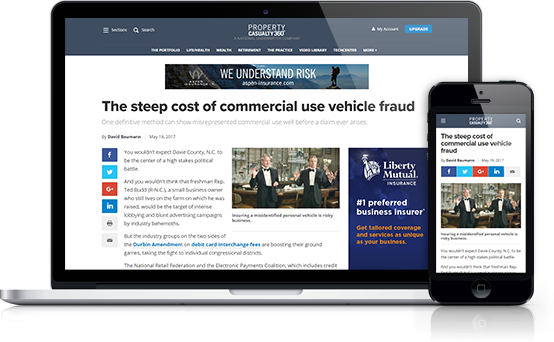Indiana workers’ average medical payment per claim inches up
WCRI report: Hospital payments jumped 4% during the study period.
Already have an account? Sign In Now
NOT FOR REPRINT
© 2025 ALM Global, LLC, All Rights Reserved. Request academic re-use from www.copyright.com. All other uses, submit a request to [email protected]. For more information visit Asset & Logo Licensing.
WCRI report: Hospital payments jumped 4% during the study period.
BlueGreen Alliance: Manufacturing is vital to revive the middle class and drive down pollution.
The consequences of higher premiums may include lower net operating income, failed deals and declining valuations.
eBook
Sponsored by AgentSync
The Future of P&C Insurance: The Race to Contain Costs Amid Rising Catastrophic Losses
The P&C insurance sector is currently facing challenges. This eBook outlines the most pressing problems, the most promising solutions, and a few examples of these principles in action.
Case Study
Sponsored by CoreLogic
Revolutionizing Claims Processing: How a Leading Insurer Transformed Water Mitigation Reviews
Discover how one insurer drastically improved the efficiency of their water mitigation claim reviews, reducing costs and time while enhancing decision-making. Learn how this approach can transform your claims process, making it faster, more accurate, and less resource-intensive.
Assessment
Sponsored by AgentSync
Distribution Channel Management Assessment
Navigating today’s insurance landscape requires more than instinct. Assess the strengths and gaps in your distribution strategy with this comprehensive tool. Discover actionable insights to refine operations, enhance data quality, ensure compliance, and scale efficiently. Evaluate your current capabilities and see where you stand across five crucial areas. Start building a more resilient and agile network today.
 Copyright © 2025 ALM Global, LLC. All Rights Reserved.
Copyright © 2025 ALM Global, LLC. All Rights Reserved.



